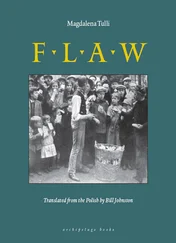“Pass me —,” she would begin.
The boy would give her a cigarette in the long holder.
“There’s simply no reason to get up,” she would sigh, flipping through the morning newspapers in a cloud of bluish smoke.
The black boy would crack the window open to let out the smoke, and if it was a Sunday, muffled drumbeats of military bands from Ludwig Neumann’s loudspeakers would force their way into the room in a tattered cloud. The Chinese lapdog was terrified of them. It would unerringly recognize a marching rhythm and scramble under a pile of Natalie Zugoff’s gowns with a desperate, high-pitched yapping. It would thrash around beneath them till the boy retrieved it half-suffocated from among the silks.
Out of the blue, a messenger brought a diamond ring in a velvet-lined box. The sender was someone by the name of Fiff; no one at the hotel had ever heard of him.
“What’s his idea!” Natalie Zugoff exclaimed, touched to the quick. “How dare he!”
She only calmed down when Mr. Lapidus himself sought out the impertinent admirer, who turned out to be the head of security at Slotzki’s factory, and returned the box in person. After which he gave Natalie Zugoff a detailed report, recounting how he had met with a young person in gaiters and cheap woolen britches, and how this man had dropped the box onto the sidewalk, crushed it with his hobnailed boot, and kicked the diamond ring into the drain.
From that moment on the seats cracked like pistols during every show. Men in britches and gaiters, wearing armbands with the Slotzki factory emblem, would leave before the end, choking on their own arrogance. They were disgusted by the audience’s stillness and silence and they refused to wait for the applause that burst out after the final number, so they went directly to the tavern across from the theater. There, waiters in greasy aprons crisscrossed the room bearing clinking beer mugs over the customers’ heads. They wove through the crush, amid a commotion that never let up even for a moment from afternoon till late at night, their ears filled with the crash of ocean rollers that men’s voices became as they shouted themselves hoarse over the long beer-stained tables. The racket took on the form of a song, a prideful legato that clumsily rounded off the successive lines of the verses, while empty tankards with dried white foam inside hammered the rhythm on the table top, four beats to the bar. But when, as happened from time to time, a petard was tossed unexpectedly into the tavern, sowing confusion, the choir split into individual voices, into the cries of shipwrecked sailors cast on the waves of cacophony.
Rauch disdained anything that resembled ocean rollers, Ludwig Neumann’s public loudspeakers, or songs transcribed for thick glass beer mugs and voices gruff from yelling. As he left the theater after a show and had to pass the tavern, he would resort to the light repertoire. He would tap the beat with his rolled umbrella, steadfastly resisting the rhythm dictated by the thud of tankards. Transported on the raft of an amusing operetta polka, he would arrive dry-shod at Corelli’s café just in time for his evening game of billiards with the chief of police. As they chalked the tips of their cues and studied the movement of the balls on the green baize, they would consider one thought after another in silence. Crack! Rauch would make a shot as he pondered a new program starring Natalie Zugoff, which would eclipse the previous show. Crack! The chief of police would take his shot, turning over in his mind the mystery of Rączka, the fellow responsible for the petards thrown by the ragamuffins of Factory Street. The thoughts sped across the green baize and collided with one another, one driving the other forward. Rączka sold petards to the hooligans and had money. Fuses kept going missing from Loom’s munitions factory. Someone was obviously buying them up. Crack, crack, went the balls.
“Nice cannon,” acknowledged Rauch.
But the problem of Rączka remained unresolved.
“Apparently he goes around bragging he can make a bomb out of anything,” the chief of police would say, lining up his next shot. “I’m not exactly going to look good if he decides to prove it.”
RAUCH WOULD GET HOME LATE AND GO TO BED LONG AFTER midnight. He never rose before ten. Around midday he would still be wandering from room to room in his flowery silk dressing gown. He’d pick up a book, read half a page, then toss it down on the sofa; he’d go to the upright piano and tap a few notes; he’d open a flacon of perfume, smell it, then return to the piano. His pudgy fingers barely fit on the keys. He would conclude his tune with a final chord.
The theater brought in excellent takings, and Rauch swelled with satisfaction, growing bigger and heavier by the day. He even wondered if it might be possible to reopen the local record press.
“What record press?” the musicians in the band laughed. “He must have dreamed it up when he was dozing through a rehearsal.”
At exactly this time a fire broke out in the wings. The flames quickly spread to the wooden stairs that led to the dressing rooms. The young ladies of the corps de ballet didn’t smell the smoke until their exit route was already cut off. They ran in their underwear across the floor that felt like heated tin, screaming to high heaven. The fire brigade put their ladder up to the window and one by one brought the dancers down from the ledge. A crowd of gawkers greeted the shocking white of underskirts with whistles and howling applause.
“That dolt!” roared Rauch. “He ought to leave the damn posters alone. Why does he have to go traipsing round after the leading lady? He was supposed to keep watch behind the wings like a dog, to make sure no one set the place on fire!”
The stench of burning lingered for a long time in the theater. Sacked by Rauch, Alojzy the watchman loitered around the stage door, accosting members of the band as they arrived at work.
“B-b-before they rebuilt it this was the officers’ mess,” he kept repeating. He insisted that the fire must have been started during the war by German officers tipping ash from their pipes.
“Take it easy there,” the men he stopped would say, clapping him on the shoulder.
“Fire n-n-never goes out! It can smolder under the floor for years!” Alojzy would call after them as they walked away.
And he would ask himself bitterly who was supposed to understand the nature of fire if not himself, a fireman.
Rauch ordered the new watchman not to let Alojzy into the theater. Treated roughly, the buttons on his coat torn off, Alojzy hobbled up on his wooden leg and stood beneath the window of the director’s office.
“It’s smoldering! You need to find where it’s smoldering and put it out! Otherwise the theater’s going to burn and the rest of the town with it!” he shouted, stumbling over every syllable, and lifting his eyes to the balcony as if he expected a response from up there. A crowd gathered and was quickly dispersed by the police, who took Alojzy to the precinct. They held him tightly by both arms like a dangerous lunatic. Locked up in a holding cell, his suspenders and shoelaces taken away, he beat his head against the iron door.
“Who’s going to look after her?” he cried. “Who’ll protect her?”
When they let him out he was barely still alive. He went straight to Loom’s cook.
“Eat,” Adela said, pushing some apple pie in front of him. “You’ll be the death of me, you crazy man.”
Alojzy didn’t even sit down. He paced about by the kitchen table. Spitting crumbs, he cursed Rauch and repeated over and over that the floor absolutely had to be ripped up throughout the entire theater, except for the orchestra, where it had been laid after the war.
Читать дальше












